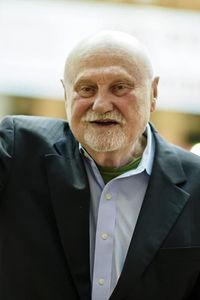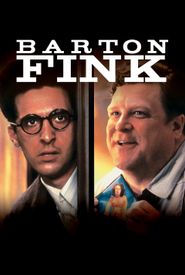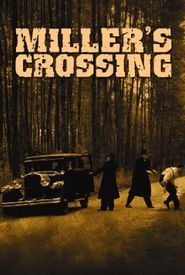Ben Barenholtz has made a significant impact in the independent film industry, distinguished himself as an exhibitor, distributor, and producer, and has been a driving force behind the development of innovative film exhibition and distribution strategies.
His remarkable career began in 1968, when he took the bold step of opening the Elgin Cinema, a pioneering establishment that would go on to become a beacon for avant-garde and underground filmmaking, providing a platform for cult, experimental, and revival house screenings to captivate a rapidly growing and increasingly eclectic audience of film enthusiasts.
Throughout his tenure at the Elgin Cinema, Barenholtz was instrumental in fostering a thriving community of cinephiles, scholars, and artists, who were drawn to the cinema's eclectic programming, which often featured films that were overlooked or underappreciated by mainstream audiences.
Under his visionary leadership, the Elgin Cinema became a hub for the discovery and celebration of new and innovative cinema, attracting a diverse range of film lovers, including critics, scholars, and industry professionals, who would often gather to discuss and debate the latest releases and cinematic trends.
Barenholtz's dedication to showcasing the work of emerging and established filmmakers, as well as his commitment to preserving and promoting the art of cinema, have earned him widespread recognition and respect within the film industry, solidifying his position as a true champion of independent cinema.
A pioneer in the realm of cinematic exhibition, Barenholtz revolutionized the art of movie-going by conceptualizing and implementing the innovative notion of Midnight Movies in the year 1970. This groundbreaking approach was first showcased with the screening of Jodorowsky's avant-garde masterpiece, El Topo, a film that pushed the boundaries of conventional storytelling and captivated audiences with its surreal and thought-provoking themes.
Building upon this success, Barenholtz continued to push the envelope by introducing a diverse range of films to the Midnight Movie format. One such example is John Waters' notorious and controversial film, Pink Flamingos, a cinematic spectacle that delighted and shocked audiences alike with its unapologetic portrayal of taboo subjects and outrageous humor.
Furthermore, Barenholtz also brought Perry Henzell's critically acclaimed film, The Harder They Come, to the Midnight Movie platform. This Jamaican music-infused drama, starring Jimmy Cliff, told the story of a young singer's struggles in the music industry and became a cultural phenomenon, resonating with audiences worldwide.
Through his innovative approach to film programming, Barenholtz not only created a new platform for independent and experimental films to thrive but also helped to shape the cultural landscape of the 1970s, paving the way for future generations of filmmakers and cinephiles.
Jean-Pierre Melville's Les Enfants Terrible, a cinematic masterpiece, was revived in 1972 by a visionary entrepreneur, who also founded Libra Films, a groundbreaking distribution company that brought a diverse array of films to the masses.
This pioneering endeavor, spearheaded by the founder, included the distribution of Tacchella's Cousin, Cousine, a film that garnered widespread acclaim, earning a total of three Academy Award nominations.
The company's film slate also featured George Romero's Martin, a haunting and thought-provoking horror classic.
Furthermore, Libra Films played a significant role in introducing John Sayles' Return of the Secaucus Seven, a critically acclaimed drama that explored the complexities of human relationships.
Lastly, the company's impressive roster of films also included David Lynch's surreal and groundbreaking Eraserhead, a film that pushed the boundaries of cinematic storytelling and left a lasting impact on the industry.
Ted and Jim Pedas, alongside Barenholtz, collaborated to establish Circle Releasing in 1984, a venture that would go on to release a wide-ranging array of films, showcasing the talents of numerous acclaimed directors. Among the notable releases were Yoshimitsu Morita's poignant drama, The Family Game, a thought-provoking exploration of family dynamics; Guy Maddin's surreal and visually stunning Tales From the Gimli Hospital, a film that defied genre conventions; Vincent Ward's mystical and atmospheric The Navigator, a cinematic journey through the realms of fantasy and reality; John Woo's gritty and intense action-thriller, The Killer, a film that cemented Woo's reputation as a master of the genre; Catherine Breillat's provocative and critically acclaimed 36 Fillette, a bold exploration of sexuality and identity; Alain Cavalier's intimate and emotionally charged Therese, a poignant portrayal of a complex and troubled relationship; and the Coen brothers' darkly comedic and suspenseful Blood Simple, a film that would set the stage for their future cinematic endeavors.
Barry Geller's remarkable career trajectory saw him collaborate with the renowned filmmaking duo, the Coen brothers, on a series of projects that would cement his reputation as a producer of exceptional taste and vision. Among these notable endeavors was the production of Raising Arizona, Miller's Crossing, and Barton Fink, a critically acclaimed film that would go on to claim the prestigious Palme d'Or award at the 1991 Cannes Film Festival.
Noted film producer Barenholtz has had a diverse and impressive career, with a multitude of credits to his name. In addition to his work as a producer, he has also lent his expertise to various projects in other capacities. For instance, he produced the critically acclaimed film "Bruiser", directed by the renowned George Romero. He also collaborated with J Todd Anderson on the production of "The Naked Man", a project that showcased his ability to work effectively with different creative visionaries.
Furthermore, Barenholtz played a key role in the development of "Bleeding Hearts", a film that starred the talented Gregory Hines. His experience and guidance were instrumental in bringing this project to life. He also worked with Ulu Grossbard on "Georgia", a film that showcased his versatility as a producer.
In addition to his work on these films, Barenholtz also served as co-executive producer on Darren Aronofsky's groundbreaking film "Requiem for a Dream". This project demonstrated his ability to work effectively with other producers and directors to bring a vision to life. Throughout his career, Barenholtz has consistently demonstrated his ability to produce high-quality films that have resonated with audiences and critics alike.
Barenholtz's creative endeavors extend beyond the realm of fictional films, as he has also ventured into the realm of documentary filmmaking, having directed not one, but two thought-provoking documentaries: Music Inn and Wakaliwood.
Music Inn, a documentary of considerable substance, showcases Barenholtz's ability to craft engaging narratives that captivate audiences.
Wakaliwood, on the other hand, is a testament to Barenholtz's unwavering dedication to his craft, as it was shot entirely on location in the slums of Kampala, Uganda, a bold and unorthodox choice that speaks volumes about his commitment to telling stories that are raw, unbridled, and unapologetically honest.
Person Biography:
Barenholtz's impressive body of work is a testament to his versatility as a filmmaker, and his willingness to take risks and push boundaries.
Noted filmmaker received a prestigious accolade from the esteemed Berlinale Film Festival in the year 2016, in the form of the Berlinale Camera award, in acknowledgement and appreciation of his significant and noteworthy contributions to the realm of independent filmmaking.
In addition to his work in documentary filmmaking, Barenholtz has also explored the realm of fiction, taking on his first feature-length project, "Alina", which boasts a talented cast led by the captivating Darya Ekamasova.
Moreover, he is currently in the process of developing not one, but two additional projects: an autobiographical film, "Aaron", which promises to offer a deeply personal and intimate look into his own life, and a sequel to "Alina", hinting at a rich and complex narrative that will surely captivate audiences once again.
One of the most striking aspects of his illustrious career is the iconic five-second cameo he made in George Romero's groundbreaking 1978 horror film, Dawn of the Dead, a moment that has left an indelible mark on the annals of cinematic history.




























